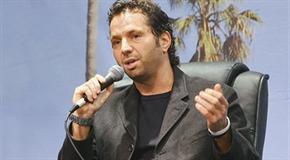Features
Music’s Middle Path To NC

It appears that a middle path may be opening up, following comments by Live Nation CEO Michael Rapino to Amplify and The Real earlier this week.
Rapino said his company was “One hundred percent supportive when [artists] choose to take a stand against the law by canceling shows,” but that the company also “fully stands by artists continuing with a performance.”
That position has given acts some flexibility and embraces the reality that most touring shows can’t afford to cancel their concerts in the state. In fact, only a handful of acts are capable of hurting the state’s finances by canceling a show.
“When a major act like Springsteen cancels a show at the
Canceling a show at a privately owned theatre or club doesn’t really capture the attention of the governor, he said, and just hurts venues, nonprofits and fans. In most cases the show will go on.
The state’s music scene isn’t totally out of the woods, explained promoter Brian Penix with NS2.
Long-term, North Carolina could see a large concert deficit take shape later in the year as bands route around it.
“A lot of artists probably will skip North Carolina, and it will cause a major domino effect,” he said. “It could put a major strain on venues, stagehands, caterers, security companies and production companies.”
Penix said that while he does “salute the artists like
Whatever happens, Rapino said he’d like to see more executives make a stand.
“What is surprising is that more of the leaders in the music business have not come forward to support the groundswell of artists and managers who have opposed this discriminatory law,” he said.